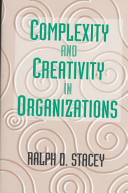A book that changed my life

In about 1999 (oh the anticipation in just looking at that date, it was bursting with potential), the guy who led my team lent me a book because he thought I’d be interested in it. We had that kind of relationship, it was a small team and we chatted often about wider things than the actual work we were supposed to be doing. He and I also lived on the same train line and so would carry on our conversations after work.
So anyway, what that meant was that he knew the kinds of things I was interested in. We were also working on measuring performance in public services and trying to do that in an intelligent way, looking at how you could use data to help tell stories or guide you to where the stories might be, but mostly how to have a good conversation with people in local authorities that would help them to improve services to local people.
I don’t remember why he had the book, he was just that sort of guy. He’d done PPE at Oxford and had a doctorate, I think from the LSE. He was a thinker and voracious reader and I loved having someone like that to talk to about big ideas.
The book was called “Complexity and Creativity in Organisations” by Ralph D Stacey. It changed the way I thought. It presented a totally different perspective on organisational life from any other management book I’d read. When I say it changed the way I thought, I mean that it gave me permission to think in a way that I’d thought wasn’t allowed, to push back against the idea that cybernetics, treating organisations as machines made of people, was the best way to achieve improvement. I loved the book, I might have read it twice.
What I took from it was a framework for looking at and interpreting emergent behaviour among groups of people. He brought together the then new field of complexity theory with knowledge and experience of psychotherapeutic practices and for the first time I heard someone talk about how power was distributed in a group in a way that suggested there might be other ways of organising than a static hierarchy. He also talked about organisations as networks and how the movement of information, diversity of people and the richness of connections between people were all factors in how creative a group could become.
I started to be excited again about what this new millennium might bring, I could see how these ideas fitted well with the ideas behind the World Wide Web, ideas of decentralisation and networks of autonomous creators coming together to make new forms of company and services. I had no idea how much it would affect the next part of my life, but I’d woken up again and was ready to find out.
The organisation I worked for was very hot on developing their people, but I was as useless at taking advantage of that as I was at taking holidays. One day just before my appraisal, I flicked through a brochure for Roffey Park and couldn’t believe it. There was a course in Managing Complexity running over the next six months or something and the course leader was Ralph Stacey. Yes, I had to do that course.
Have you ever read "Zen and the art of motorcycle maintenance"
Interesting journey into what quality actually means overlayed on a journey across the states on motorcycles.
No I never have, despite it being recommended regularly over the last forty years :D (especially when Pirsig died).
I think it's time!
I never got that far with his second. Lila (I think)
Might give it another try